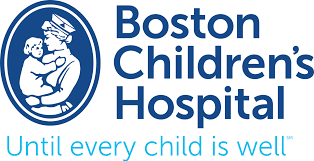December 19, 2017

|
Project Summary:
We proposed incorporating a new technology, Greplytix, to alter the method of clinical feedback to trainees in our LEDBP and Post-Doctoral Psychology training programs and the method of didactic feedback to faculty from trainees in our LEDBP, LEND and Post-Doctoral Psychology training programs. This new program, Greplytix, served as the platform through which real-time feedback was gathered. Greplytix is available as an app that is accessible on a tablet or smartphone with touch response for closed-ended questions and voice-to-text capability for providing open-ended responses. Because the system can be used in the moment, on devices that faculty and fellows carry in their pockets, it provided us an opportunity to document and share observations and feedback easily and efficiently during clinical sessions and immediately after didactic sessions. Greplytix also can provide summaries of responses to closed ended questions, making it easier for faculty to identify trends.
Goals and Objectives Accomplished:
a. Goals
- Trainees improved their delivery of family-centered, culturally-competent, evidence-based care
- Trainees improved their inter-professional team interactions
- Trainees improved their understanding of the family, community and cultural factors that influence health and health behaviors
b. Objectives
- Six faculty (more than the 5 planned) adopted Greplytix and provide formative feedback during 60% of opportunities
- Feedback information provided through Greplytix will be used by fellows to inform their learning goals
- Fellow summative evaluations incorporated the formative evaluation information collected through Greplytix
- Feedback information provided through Greplytix will positively influence clinical training experiences
- Six trainees adopted Greplytix and provide feedback during or after each Community Advocacy Rounds session
- Feedback information provided through Greplytix will be used by faculty to plan Community Advocacy Rounds sessions
- Feedback information provided through Greplytix will positively influence the quality of Community Advocacy Rounds
- While faculty were initially reluctant to provide qualitative comments about fellows' performances, these comments were the most useful during our CCC meeting, far more useful than quantitative ratings alone.
- Faculty are busy, and even well-intentioned faculty require support when asking them to add another task to their plate.Those with shared passion for a mission are more likely to expend time and energy than those less interested but with requisite skills.
- Beyond the project itself, engaging with faculty from other institutions identifies colleagues with shared and complementary perspectives and interests. Opportunities for related or unrelated projects can emerge from these new relationships.
- Unfortunately, the platform was not capable of gathering bi-directional feedback. While program staff acquired valuable information about how to work with developers, they were not able to gather feedback from trainees to evaluate and plan Community Advocacy Rounds sessions.
Alison Schonwald | [email protected]